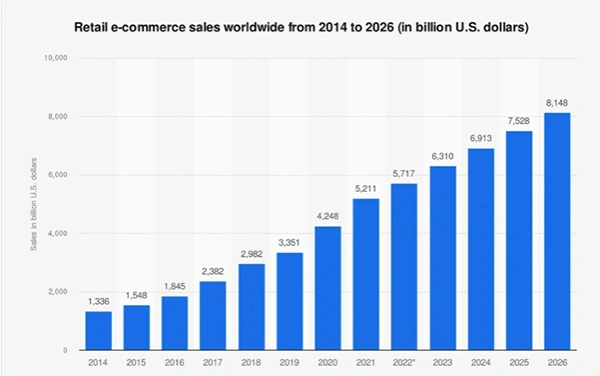
In the contemporary business landscape, scalability is more than just a buzzword; it’s a necessity. As startups launch and small companies endeavor to grow, having the infrastructure that can adapt to rapid expansion is relevant.
By implementing specific systems and practices during the initial stages, brands can ensure they’re not just growing but scaling efficiently. Here’s a guide on pivotal business implementations that set your enterprise on the path to successful scaling.
Financial fitness is essential for business to understanding and managing your finances is the first step that lays the foundation of your business. Efficient accounting software ensures you can handle increased transactions, provide financial forecasts, and keep a tight rein on expenses as the business expands.
With advanced financial software, owners can also identify any loopholes that could trigger a threat in the future and take preventive measures to counter any sudden debts. Though the markets are volatile due to various socio-economic reasons, businesses should be ready to create an investment strategy for emergencies.
EXPERT ADVICE
Analyze your competition to learn their patterns of marketing and branding to create a product or service that is unique as well as valuable for the customer.
While initial marketing might be handled manually or through simple tools, as your customer base grows, you’ll need a more sophisticated system. CRM platforms like email marketing automation and advanced analytics tools should be considered.
Using social media as a marketing tool, businesses can leverage automation with scheduling apps, understanding customer spending behavior, and providing improved products and services. Connecting and promoting your brand online will always be a valuable asset that will help scale the national and international success of your company.
In a survey conducted in 2022 by the U.S. Bureau of Labor Statistics, only 25% of new ventures are successful beyond 15 years. That is a huge gap to consider and therefore, creating a quality-driven and customer-centric strategy never fails.
For brands in the digital age, IT isn’t just about support – it’s often at the core of operations. A scalable IT infrastructure means having cloud solutions that can adjust to your needs, cybersecurity measures that evolve with threats, and it service desk to address tech issues promptly. A proactive approach, rather than a reactive one, ensures your IT can accommodate improvement without major hiccups.
Besides prevention from online hacks, a strong IT infrastructure also improves employees’ productivity levels. When your workforce collaborates with machine learning, it improves overall efficiency with accurate and detailed information.
One of the fastest-growing industries to invest in is the retail e-commerce sector which is showing no signs of stopping even during inflation caused by the pandemic.
As the graph shows below, retailers will see a constant improvement till 2026 and beyond.

Automating routine tasks, from inventory management to customer support queries, can massively reduce human error and free up valuable time. In the beginning stages of a company, hands-on management is typical, but as demand grows, automation becomes not just beneficial but significant.
Automated processes can lead to more consistent product quality, faster response times, and improved customer satisfaction. Moreover, programming tools can provide real-time data and insights, aiding in better decision-making.
By embracing modernized technologies, such as AI-driven customer support or automated supply chain management, enterprises can ensure they’re keeping up with progress and driving it forward efficiently. Implementing systems that allow for task automation early on can make scaling smoother and more efficient.
As you scale, your team must adapt to new tools, strategies, and responsibilities. Investing in training ensures that your team is always equipped to handle the challenges of a growing business.
Continuous learning fosters adaptability, ensuring employees can navigate the shifting demands of an expanding operation. Moreover, training can identify and nurture in-house talents, potentially revealing future leaders who understand the company’s core values and vision.
Offering professional development opportunities can also boost employee morale and retention. It demonstrates a commitment to their growth and career progression.
Moreover, a well-trained team can reduce the need for hiring as you scale, saving costs and maintaining company culture. By focusing on development, brands can anticipate future needs and cultivate an environment of innovation and adaptability.
Also Read: Why Medium-Sized Business Thrive With Steel Structures?
One of the ways businesses showcase their social responsibility is by focusing on sustainable products and services. It is an opportunity to support local artisans and is favored by many high-end clients. It proves as a collaboration with like-minded sponsors and establishes the strong and unique values of your company.
Research is required to bring together people from different social channels for hosting webinars, and networking with various entrepreneurs to gain valuable insight and turn your prospects into valued customers.
Scaling a business is not merely about increasing profits – it’s about growing in a manner that’s sustainable and efficient. Quick implementation of robust systems and practices ensures that when progress happens, your company isn’t caught off guard but is ready to ride the wave to success.
Your business becomes stronger with advanced technological software as well as employees who work with unified goals for your company. Investing in their training improves work culture and adheres to the values of the brand. Customers also like connecting with a business that provides quality products and services of their interests.
